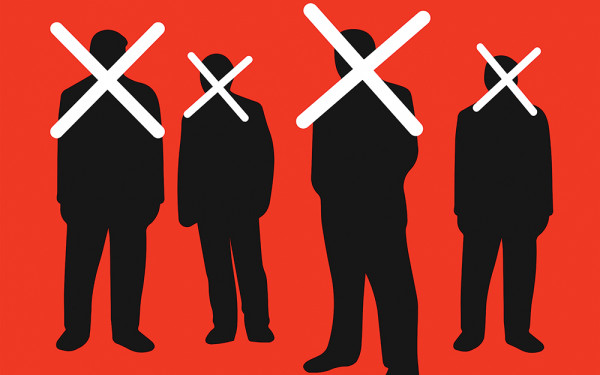Calling for the Implementation of BDS
Why One Student Believes the Canadian Government Should Change its Stance on Israel
On Feb. 22, McGill undergraduate students brought a motion forward at their general assembly to have the Students’ Society of McGill University endorse the BDS movement.
On the same day, the Conservative party brought a motion to the Canadian parliament to condemn the BDS movement.
The Boycott, Divestment and Sanctions movement is a campaign that was launched in 2005. A group of more than 170 organizations called for the academic, cultural and economic boycott of Israel until it complies with its three demands—the right of return for Palestinian refugees, equal rights for Arab-Palestinians living in Israel, and ending the occupation.
All three of these demands are supported by UN resolutions.
UN resolution 194 states that Palestinian refugees have the right to return, and that compensation must be paid for the loss or damage of property. The fourth Geneva Convention law states “the occupying power shall not deport or transfer parts of its own civilian population into the territory it occupies.”
There are over 400,000 Israelis living in illegal settlements in the occupied West Bank. These settlers have the opportunity to vote at Israeli elections, however Arabs living on the same piece of land cannot.
These violations of international law, the constant theft of land and the oppression of Palestinians by the Israeli government have pushed the Palestinian people to protest, to rise up and defend themselves.
Palestinians have attempted popular uprisings as well as diplomacy in order to end the occupation. In fact, many settlement expansions in the West Bank have occurred during peace negotiations with Israel.
While countries that violate human rights are often sanctioned by the international community, imperial countries have a free hand when it comes to committing large scale atrocities and, in my opinion, are often protected by veto rights at the United Nations.
Israel is one of them.
The current political structure has been failing the Palestinian people and their struggle for basic human rights. The BDS movement was a call by the Palestinian people to citizens of the free world. Their call has been heard by hundreds of student unions, workers unions and non-profit organizations.
Foreign investments in Israel were cut by 50 per cent in 2014. Famous artists and scientists have openly answered the call. Well-known physicist Stephen Hawking, in support of Palestinian human rights, publicly endorsed the boycott.
Grammy Award singer Lauryn Hill cancelled a concert that was supposed to take place in Israel after boycott pressure. The second largest workers’ union in Quebec has endorsed the BDS movement.
Canada’s foreign policy recognizes the urgency of resolving the Palestinian refugee issue, and also recognizes the settlement expansions by Israel in the West Bank to be illegal. These happen to be two of the three demands of the BDS movement.
Ironically, the Canadian parliament voted to condemn the BDS movement. The position the government took is problematic for many reasons. The first is that adopting a BDS mandate, just like the CSU did in 2015, is a form of protest against the status quo that is suffocating the Palestinian people.
It also allows students, workers and organizations to refuse to be complicit in the ongoing oppression of Palestinians.
The government’s condemnation of BDS is a way to contain our freedom to protest. The call for BDS came from Palestinian civil society, which has been living under blockade and occupation for decades. Condemning BDS is an attempt to slow down their liberation movement.
Before condemning the BDS movement, the Canadian government should condemn the brutal massacre of Gaza that occurred in the summer of 2014, where approximately 500 children were killed by Israeli ground forces. Before condemning the BDS movement, the government should take a stronger stance and concrete actions against the settlement expansions.
The students at McGill voted in favour of the BDS movement by a significant majority. The process at the SSMU requires that every motion that passes at a general assembly be ratified by the students online. During the ratification process, there are strict rules, guidelines and procedures—it is strictly forbidden to campaign during the ratification process.
However, there is evidence available that suggests there was campaigning by the “no” side during ratification, and that similar to the campaign at Concordia, the “No to BDS” side did not respect the rules. Unfortunately, the motion did not pass the online ratification.
In my opinion, the opposition is ready to break rules, sabotage elections and misinform voters in order to slow down the BDS movement. Israeli groups spend thousands of dollars on anti-BDS campaigns because Israel is not ready to end its occupation of the West Bank and Gaza.
Israel wants to keep on benefiting from cheaper Palestinian wages and believes that settlement expansions will create a natural condition that will push Palestinians out of Palestine.
Despite the parliament and McGill vote, the BDS movement has been growing at an exponential rate. Companies such as Veolia, Orange and G4S have lost large amounts of money due to the BDS movement. In February, Sodastream admitted that the BDS movement was responsible for the closing down of the factory that was operating illegally in the occupied West Bank.
Ending the occupation is a victory for everyone in Israel-Palestine.
Rami Yahia is general coordinator for the Solidarity for Palestinian Human Rights student group, and is a councillor on the Concordia Student Union
Correction: In a previous iteration of this article, the pseudonym Marwan Habash Khaled was used to attribute the author. Keeping in-line with our anonymity policy, the attribution has been changed to the author’s real name. The Link regrets the error.





